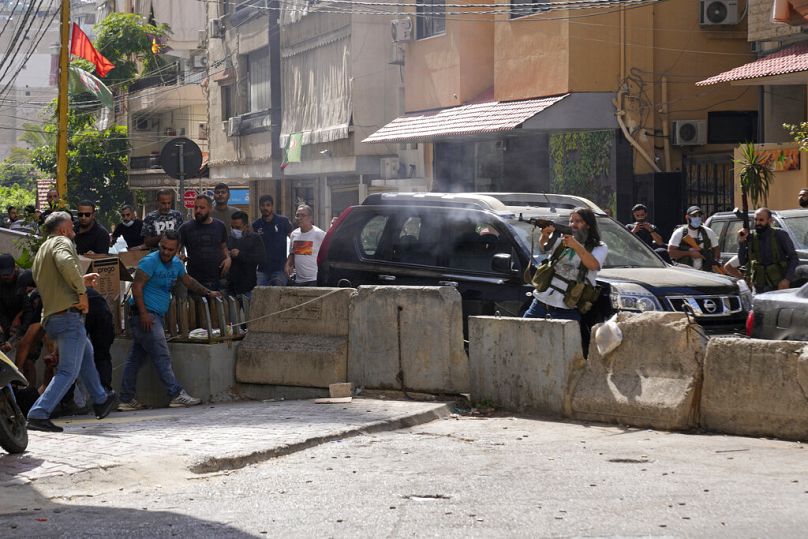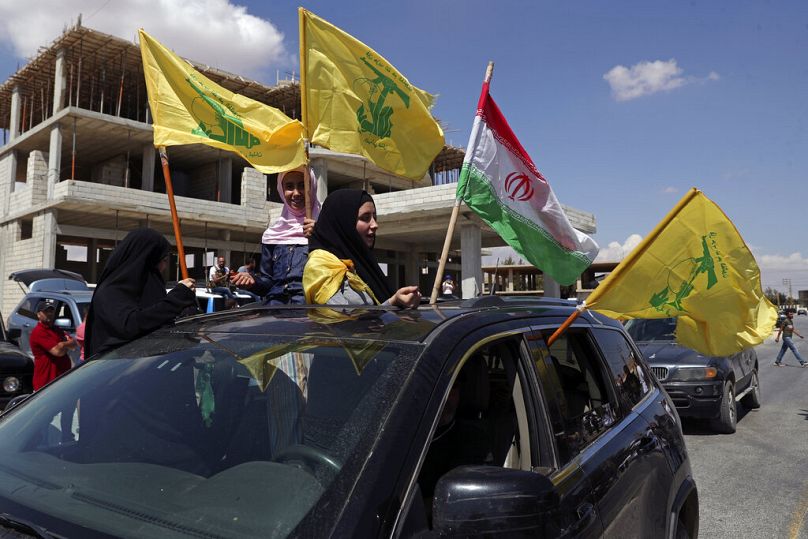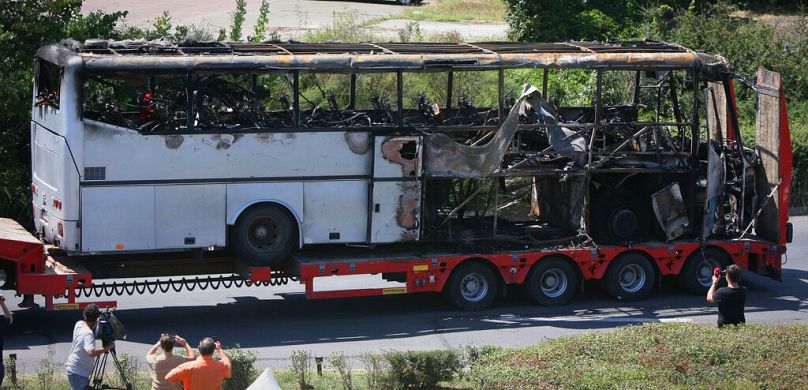Europe as well as Lebanon is under threat from Hezbollah and must fully designate the group as a terrorist entity, argues the Counter Extremism Project's Hans-Jakob Schindler
Last month, an EU Resolution on Lebanon brought the plight of the Mediterranean nation back into the European spotlight. After defaulting on its Eurobond debt last year, Lebanon is struggling with one of the worst financial crises the world has seen since the 19th century.
 ADVERTISEMENT
ADVERTISEMENT
 ADVERTISEMENT
ADVERTISEMENT
The government can no longer afford to import basic necessities, while fuel shortages have plunged the country into near-constant darkness.
Hezbollah was founded amid the chaos of the 15-year civil war that raged in Lebanon from 1975 until 1990. Ever since its inception, it has engaged in violent terrorist activities, targeting its own enemies and acting as a proxy organisation for Iran, both in Lebanon and abroad - including in Europe.
Hezbollah’s destructive influence was exemplified just this week when gunfire erupted in the Lebanese capital during a protest organised by the group.
At least six people were killed, and dozens injured, in violence reminiscent of the civil war and the worst street fighting Beirut has seen in years.
The simple reason for the dissent was Hezbollah once again attempting to thwart the democratic process. The group was protesting against Judge Tarek Bitar leading the investigation into last year’s cataclysmic port explosion.
Hezbollah emboldened by political stances in Lebanon and the EU
Hezbollah maintains a marriage of convenience with portions of Lebanon's political class, and operates as a functioning political party, with parliamentary and cabinet seats.
Both sides benefit from a status quo in which the political elites are protected, and, in exchange, a blind eye is turned to Hezbollah’s violence against Israel and regional warfare on behalf of Iran. This leaves ordinary Lebanese people to suffer the consequences.
Hezbollah is blacklisted as a terrorist organisation by numerous countries, including the United States and the UK since 2019. But the EU has only designated Hezbollah’s military wing, not the political faction.
This comes even though a growing number of EU member states, including Austria, the Czech Republic, Estonia, Germany, the Netherlands and Lithuania, have chosen to designate the group in its entirety within their respective nations.
A turning tide?
Hezbollah has always tried to hide behind a veneer of respectability. But recently the veil has slipped, with the group defying international norms and sanctions.
On September 16, the first of several truck convoys arrived in Lebanon, transporting Iranian fuel via Syria. The delivery was not officially approved by the government and the trucks entered via an illegal crossing, in a transaction that violated US sanctions on Iranian oil sales.
This arrangement strengthens Hezbollah’s relationship with Iran and further normalises its ties with Syrian President Bashar al-Assad. This compromises Lebanon's sovereignty by allowing foreign policy to be dictated by a terror group.
Finally, however, MEPs are beginning to accept the danger that Hezbollah poses to Europe’s strategic interests.
The EU’s recent resolution officially condemned Hezbollah's instrumental role in Lebanon’s ongoing political and economic crisis, as well as its violent suppression of protests in 2019.
This is a welcome move from the European Parliament. Beyond the instability and chaos Hezbollah brings to the Middle East, it also has the potential to cause untold damage much closer to home.
Hezbollah's activities in Europe
Should Hezbollah be allowed to continue to consolidate its power, Lebanon could eventually become something long coveted by Iran: a forward base on the Mediterranean from which it can even more directly threaten Europe and its allies.
The organisation is already present in a number of European countries. It uses the continent as a base for operations and recruitment, with more than 1,000 active members reportedly in Germany alone.
Hezbollah's bases in Europe are also a central part of its global illicit financing network. This includes the transportation and distribution of illegal drugs, the arms trade, and a professional money laundering operation that includes laundering money for other criminal organizations.
Finally, as convictions in Cyprus in 2015 demonstrated, Hezbollah also uses European soil to store some of its terrorist supplies. The case in Cyprus involved the illegal storage of nearly nine tonnes of ammonium nitrate that were to be used by Hezbollah operatives for bomb attacks in the country.
Hezbollah has also not given up on its deadly operations in Europe. The group has been responsible for a number of major terrorist acts in the EU since the 1980s.
As recently as 2012, a Hezbollah bomb in Burgas, Bulgaria killed six civilians within EU borders. This tragic event was what forced Europe to recognise Hezbollah’s military wing - if not the rest of the outfit - as a terrorist organisation.
As the 10th anniversary of the Burgas attack approaches, it is past time that the EU takes the next step toward protecting its citizens and recognises the threat Hezbollah poses outside the Middle East.
The bloc must follow through on its recent resolution and properly hold the organisation to account. It is time to bring forward targeted sanctions against members of Hezbollah responsible for undermining democracy and the rule of law in Lebanon, and to recognise Hezbollah as a whole, not in part, as a terrorist organisation.
Dr Hans-Jakob Schindler is a senior director for the Counter Extremism Project and the former coordinator of the UN Security Council’s ISIL, Al-Qaeda and Taliban monitoring team.













